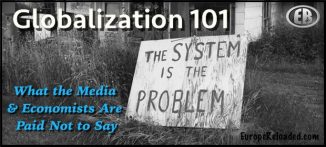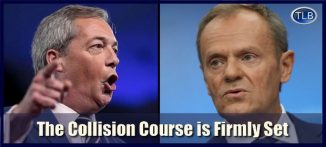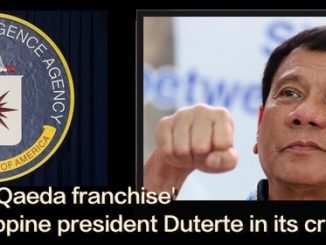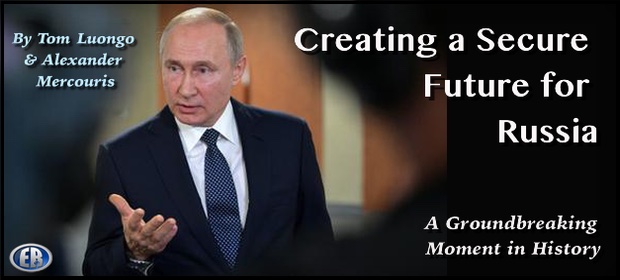
ER Editor: First we lead with Tom Luongo’s podcast with Alexander Mercouris, followed by an article by Luongo referenced in the podcast titled Putin’s Now Purged the West from the Kremlin.
Geopolitical discussions don’t come much better (i.e. more educational) than this. In an astonishing conversation of over an hour, we are led to appreciate what a truly history-in-the-making moment we are at in terms of Russia’s consolidation as a sovereign nation, thanks to the incredible skills of Putin. There is simply too much discussed and nuanced to create a bullet format of points. Listen and learn!
********
TOM LUONGO
Today I sit down with The Duran’s Editorial Director Alexander Mercouris to discuss in fine, granular detail the sweeping changes proposed this week by Russian President Vladimir Putin and how this sets Russia up for the next couple of decades.
This is can’t miss analysis from one of the real giants in geopolitics.
Alexander and I cover the history of how Putin has gradually amended Russia’s constitution and governmental structure to suit the times and achieve both his near-term, tactical goals while keeping a weather eye on the long-term strategic ones as well.
LINK TO PODCAST

********
Putin’s Now Purged the West from the Kremlin

TOM LUONGO
It came as the biggest shock of the day on Wednesday. The Russian government resigned. The day before President Vladimir Putin gave his State of the Nation address and outlined a slate of constitutional changes.
That speech prompted an overhaul of Russia’s government.
Putin’s plan is to devolve some of the President’s overwhelming power to the legislature and the State Council, while beefing up the Constitutional Court’s ability to provide checks on legislation.
From TASS:
In Wednesday’s State of the Nation Address, Putin put forward a number of initiatives changing the framework of power structures at all levels, from municipal authorities to the president. The initiatives particularly stipulate that the powers of the legislative and judicial branches, including the Constitutional Court, will be expanded. The president also proposed to expand the role of the Russian State Council. Putin suggested giving the State Duma (the lower house of parliament) the right to approve the appointment of the country’s prime minister, deputy prime ministers and ministers.
 The bigger shock was that, in response to this, Prime Minister Dmitri Medvedev (pictured) dissolved the current government willingly and resigned as Prime Minister.
The bigger shock was that, in response to this, Prime Minister Dmitri Medvedev (pictured) dissolved the current government willingly and resigned as Prime Minister.
Within hours Putin recommended Federal Tax Service chief, Mikhail Mishustin as Prime Minister. The State Duma approved Putin’s recommendation and Mishustin was sworn in by Putin all within a day.
While this came on suddenly, it also shouldn’t be a surprise. These changes have been discussed for months leading up to Putin’s speech. And it’s been clear for the past few years that Putin has been engaged in the second phase of his long-term plan to first rebuild and then remake Russia during his time in office.
The first phase was rescuing Russia from economic, societal and demographic collapse. It was in serious danger of this when Putin took over from Boris Yeltsin.
It meant regaining control over strategic state resources, rebuilding Russia’s economy and defense, stabilizing its population, getting some semblance of political control within the Kremlin and bringing hope back to a country in desperate need of it.
Hostile analysts, both domestic and foreign, criticized Putin constantly for his tactics. Russia’s reliance on its base commodities sectors to revive its economy was seen as a structural weakness. But, an honest assessment of the situation begs the question, “How else was Putin going to back Russia away from the edge of that abyss?”
These same experts never seem to have an answer.
And when those critics were able to answer, since they were people connected to monied interests in the West who Putin stymied from continuing to loot Russia’s natural wealth, their answer was usually to keep doing that.
Don’t kid yourself, most of the so-called Russia experts out there are deeply tied back to 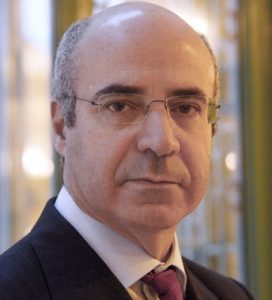 Wall St. through one William Browder (pictured) and his partner-in-crime Mikhail Khordokovsky.
Wall St. through one William Browder (pictured) and his partner-in-crime Mikhail Khordokovsky.
Nearly all of them in the U.S. Senate are severely compromised or just garden variety neocons still hell-bent on subjugating Russia to their hegemonic plans.
Their voices should be discounted heavily since they are the same criminals actively destroying U.S. and European politics today.
In the West, these events were spun to suggest Putin is consolidating power. The initial reports were that he would remove the restraint on Presidential service of two consecutive terms. And that this would pave the way to his staying in office after his current term expires in 2024.
That, as always when regarding Russia, is the opposite of the truth. Putin’s recommendation is to remove the word “consecutive” from the Constitution, making it clear that a President can only ever serve two terms. Moreover, that president will have had to have lived in Russia for the previous 25 years.
No one will be allowed to rule Russia like he has after he departs the office. Because Putin understands that the Russian presidency under the current constitution is far too powerful and leaves the country vulnerable to a man who isn’t a patriot being corrupted by that power.
There are a number of issues that most commentators and analysts in the West do not understand about Putin. Their insistence on presenting Putin only in the worst possible terms is tired and nonsensical to anyone who spends even a cursory amount of time studying him.
These events of the past couple of days in Russia are the end result of years of work on Putin’s part to purge the Russian government and the Kremlin of what The Saker calls The Atlanticist Fifth Column.
And they have been dug in like ticks in a corrupt bureaucracy that has taken Putin the better part of twenty years to tame.
It’s been a long and difficult road that even I only understand the surface details of. But it’s clear that beginning in 2012 or so, Putin began making the shift towards the next phase of Russia’s strategic comeback.
And that second phase is about taking a stable Russia and elevating its institutions to a more sustainable model.
Once birth rates improved and demographic collapse averted, the next thing to do was to reform an economy rightly criticized for being too heavily dependent on oil and gas revenues.
And that is a much tougher task. It meant getting control over the Russian central bank and the financial sector. Putin was given that opportunity during the downturn in oil prices in 2014.
Using the crisis as an opportunity, Putin began the decoupling of Russia’s economy from the West. During the early boom years of his Presidency, oil revenue strengthened both the Russian state coffers and the so-called oligarchs whom Putin was actively fighting for control.
He warned the CEO’s of Gazprom, Rosneft and Sberbank that they were too heavily exposed to the U.S. dollar this way in the years leading up to the crash in oil prices in 2014-16.
And when the U.S. sanctioned Russia in 2014 over the reunification with Crimea, these firms all had to come to Putin for a bailout. Their dollar-denominated debt was swapped out for euro and ruble debt through the Bank of Russia, and he instructed the central bank to allow the ruble to fall, to stop defending it.
Taking the inflationary hit was dangerous but necessary if Russia was to become a truly independent economic force.
Since then it’s been a tug of war with the IMF-trained bureaucracy within the Bank of Russia to set monetary policy in accordance with Russia’s needs, not what the international community demanded.
That strong Presidency was a huge boon. But, now that the job is mostly done, it can be an albatross.
Putin understands that a Russia flush with too much oil money is a Russia ruled by that money and becomes lazy because of that money. Contrary to popular opinion, Putin doesn’t want to see oil prices back near $100 per barrel.
Because Russia’s comparative advantage in oil and gas is so high relative to everyone else on the world stage and to other domestic industries, that money retards innovation and investment in new technologies and a broadening of the Russian domestic economy.
And this has been Putin’s focus for a while now. Oil and gas are geostrategic assets used to shore up Russia’s position as a regional power, building connections with its new partners while opening up new markets for Russian businesses.
But it isn’t the end of the Russian story of the future, rather the beginning.
And the slow privatization of those industries is happening, with companies like Gazprom and Rosneft selling off excess treasury shares to raise capital and put a larger share of them into public hands.
Again, this is all part of the next stage of Russia’s development, and democratizing some of the President’s power has to happen if Russia is going to survive him leaving the stage.
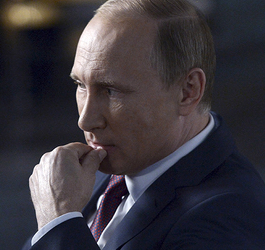 Because it is one thing to have a man of uncommon ability and patriotism wielding that power responsibly. It’s another to believe Russia can get another man like Putin to take his place.
Because it is one thing to have a man of uncommon ability and patriotism wielding that power responsibly. It’s another to believe Russia can get another man like Putin to take his place.
So, Putin is again showing his foresight and prudence in pushing for these changes now. It shows that he feels comfortable that this new structure will insulate Russia from external threats while strengthening the domestic political scene.
Gilbert Doctorow has an excellent early reaction to this dramatic turn by Putin which I encourage everyone to read in full. The subtle point he makes is:
To understand what comes next, you have to take into account a vitally important statement which Putin made a few moments before he set out his proposed constitutional reforms. He told his audience that his experience meeting with the leaders of the various Duma parties at regular intervals every few weeks showed that all were deeply patriotic and working for the good of the country. Accordingly, he said that all Duma parties should participate in the formation of the cabinet.
And so, we are likely to see in the coming days that candidates for a number of federal ministries in the new, post-Medvedev cabinet will be drawn precisely from parties other than United Russia. In effect, without introducing the word “coalition” into his vocabulary, Vladimir Putin has set the stage for the creation of a grand coalition to succeed the rule of one party, United Russia, over which Dimitri Medvedev was the nominal chairman.
The end result of this move to devolve the cabinet appointments to the whole of the Duma is to ensure that a strong President, which Putin believes is best for Russia, is tempered by a cabinet drawn from the whole of the electorate, including the Prime Minister.
That neither opens the door to dysfunctional European parliamentary systems nor closes it from a strong President leading Russia during crisis periods.
Once the amendments to the constitution are finalized, Putin will put the whole package to a public vote.
This is the early stage of this much-needed overhaul of Russia’s constitutional order, and the neocons in the West are likely stunned into silence knowing that they can no longer just wait Putin out and sink their hooks into his most likely successor.
Sometimes the most important changes occur right under our noses, right out in the open. Contrast that with the skullduggery and open hostility of the political circus in D.C. and you can which direction the two countries are headed.
Join My Patreon if you want light shed into the corners of the emerging multi-polar world.
************
Original article

••••
The Liberty Beacon Project is now expanding at a near exponential rate, and for this we are grateful and excited! But we must also be practical. For 7 years we have not asked for any donations, and have built this project with our own funds as we grew. We are now experiencing ever increasing growing pains due to the large number of websites and projects we represent. So we have just installed donation buttons on our websites and ask that you consider this when you visit them. Nothing is too small. We thank you for all your support and your considerations … (TLB)
••••
Comment Policy: As a privately owned web site, we reserve the right to remove comments that contain spam, advertising, vulgarity, threats of violence, racism, or personal/abusive attacks on other users. This also applies to trolling, the use of more than one alias, or just intentional mischief. Enforcement of this policy is at the discretion of this websites administrators. Repeat offenders may be blocked or permanently banned without prior warning.
••••
Disclaimer: TLB websites contain copyrighted material the use of which has not always been specifically authorized by the copyright owner. We are making such material available to our readers under the provisions of “fair use” in an effort to advance a better understanding of political, health, economic and social issues. The material on this site is distributed without profit to those who have expressed a prior interest in receiving it for research and educational purposes. If you wish to use copyrighted material for purposes other than “fair use” you must request permission from the copyright owner.
••••
Disclaimer: The information and opinions shared are for informational purposes only including, but not limited to, text, graphics, images and other material are not intended as medical advice or instruction. Nothing mentioned is intended to be a substitute for professional medical advice, diagnosis or treatment.


